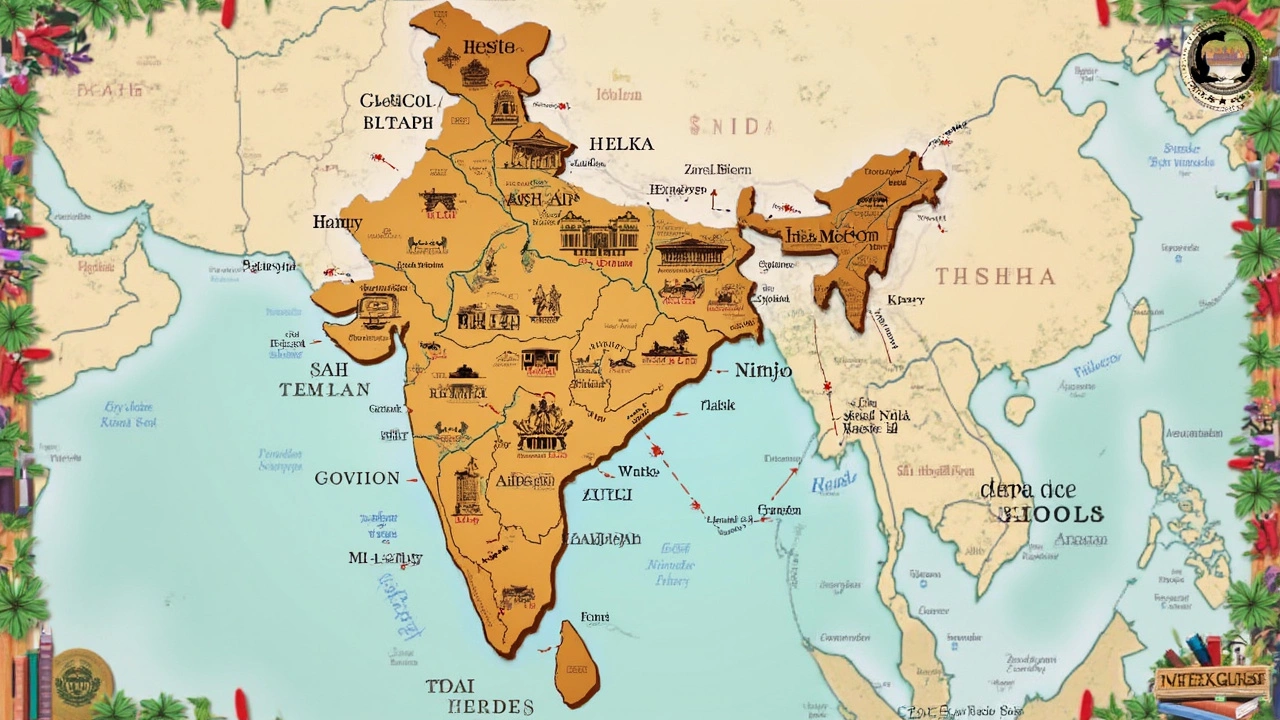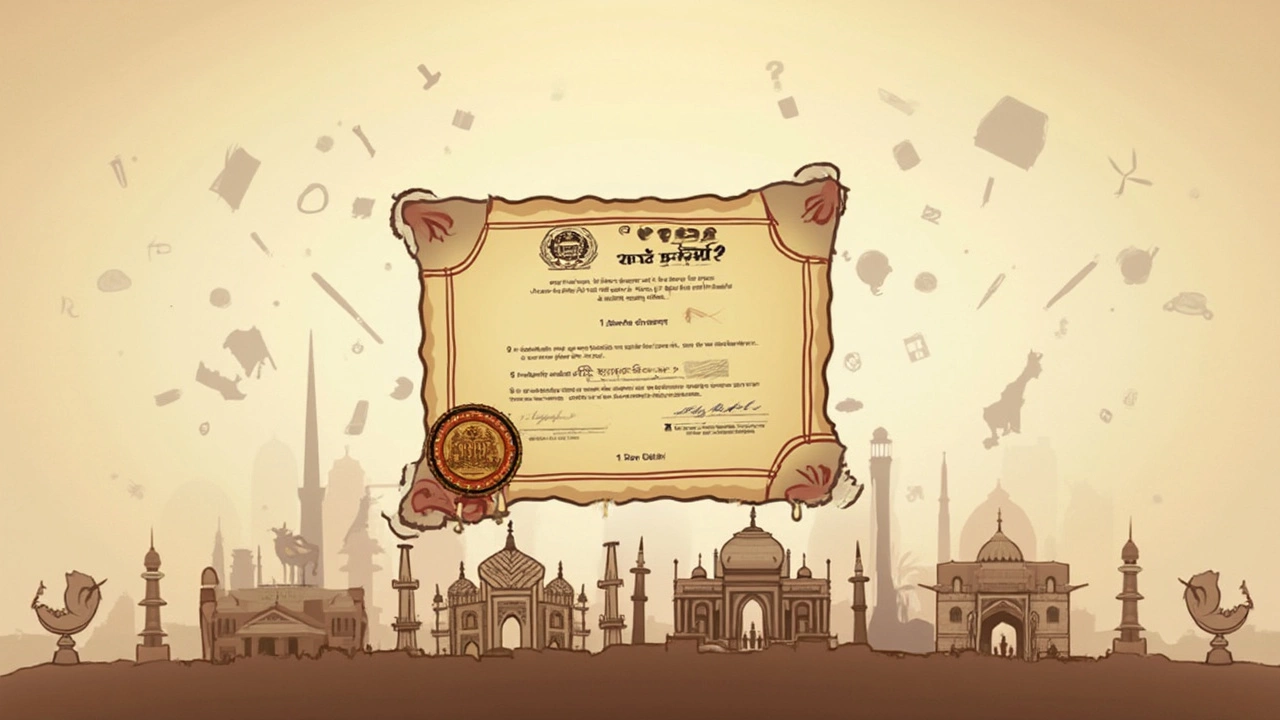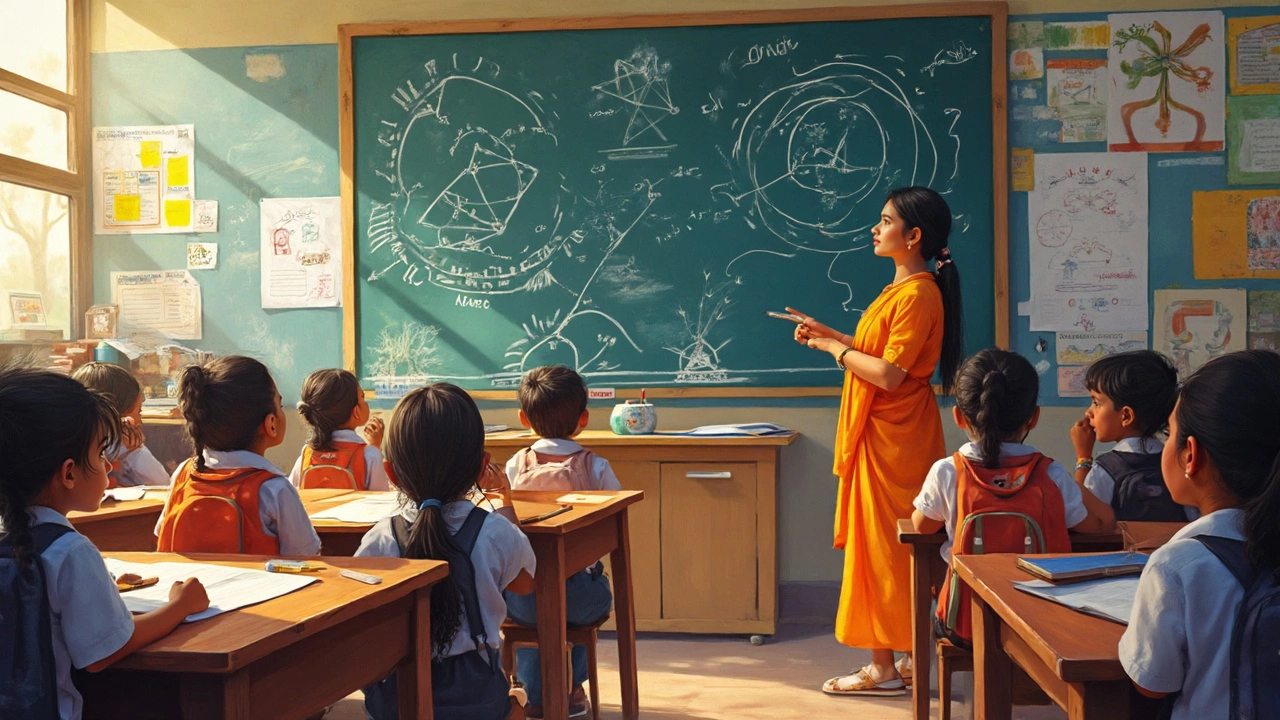So, you've heard about CBSE and maybe at some point thought it was a 'Delhi thing.' You're not alone. A bunch of folks assume CBSE, the Central Board of Secondary Education, has the word 'central' only in spirit and not in practice. Let’s clear this up right away—CBSE is not just a Delhi board; it's a national board with schools all over India.
Here’s the thing: CBSE isn’t limited to just one region like Delhi. It's all over the map. Think of it like a chain with outlets all across the country, offering the same menu. Students from up in Kashmir to down in Kerala follow the same syllabus, take the same exams, and earn the same certificates. This standardization is great because it ensures the same quality of education no matter where you are.
Now, you might wonder how this all started. The board was formed waaaay back in 1929 by a resolution of the then Government of India to provide a vast education network. While its headquarters sit in Delhi, it’s more like the central hub rather than a city-specific entity.
- Understanding CBSE's National Reach
- Historical Background of CBSE
- CBSE vs Local State Boards
- Curriculum Offered by CBSE
- Why Choose CBSE for Education?
Understanding CBSE's National Reach
Chances are, if you walk into a random school in India and ask which board they're affiliated with, you'll hear 'CBSE' quite often. This isn't just by chance. The CBSE board has a massive footprint across the country. With thousands of schools from different states following its guidelines, it’s easily one of the most recognized education boards in India.
CBSE isn’t confined to metros or tier-one cities. Its reach extends to every nook and cranny of the nation, ensuring students in remote villages get the same quality of education as their urban counterparts. And it's not just about quantity; it’s about consistency. With the same curriculum being taught from Kashmir to Kanyakumari, students experience a standardized system that's as predictable as it is comprehensive.
Ever think about why parents lean towards CBSE when choosing schools for their kids? It’s the board’s national presence and reputation for maintaining high educational standards. With direct control and oversight over its affiliated schools, CBSE ensures quality isn't compromised anywhere.
Here’s a neat fact: CBSE isn't just limited to India. Yep, you read that right. It has recognition across the globe, with schools in around 25 countries following its system. This international reach means Indian students moving abroad often experience a smoother transition in their education.
How many schools are we talking about? Well, the numbers speak for themselves. As per the latest stats, CBSE has over 24,000 schools under its umbrella. If you check out the table below, you'll get a sense of how these schools are distributed across India:
| State/Region | Number of CBSE Schools |
|---|---|
| Uttar Pradesh | 2000+ |
| Maharashtra | 1500+ |
| Tamil Nadu | 1000+ |
| Karnataka | 1500+ |
| Abroad | 200+ |
In short, CBSE is like a giant web connecting students across states and even nations, providing consistent education that prepares them for competitive exams, higher education, and beyond.
Historical Background of CBSE
Alright, let’s rewind a bit and dig into how CBSE came into the picture. It was way back in 1929 when the board first emerged out of a need to manage and cater to the educational needs of students across a vast and diverse country like India. The central government figured there needed to be a standardized education system that could unify the nation’s schooling standards, and that's how CBSE was born.
In the early days, the board was crafted to serve students primarily connected with member institutions in government sectors. Fast forward to the 1950s, a time post-independence, India was in need of improving its educational framework. That's when CBSE began to expand its footprint across the nation, opening doors to various public and private schools.
By the 1960s, things got more structured. The board was reconstituted with a broader mandate, aiming to provide an effective school curriculum nationwide. They brought in changes that standardized textbooks and exams across all states under the CBSE umbrella. This was huge because it meant a kid in Chennai and one in Chandigarh were learning the same stuff!
In the decades since, CBSE has continued to evolve, keeping pace with changing educational needs. One of its big moves was switching from traditional rote learning approaches to more practical and comprehensive models. Today’s CBSE focuses not just on academics but also on life skills and holistic development—stuff that actually helps kids in the real world.
The impact? As of today, CBSE affiliates tens of thousands of schools across India and abroad, ensuring students have a unified platform that offers them the same knowledge across the board.

CBSE vs Local State Boards
Alright, let's talk about how CBSE stacks up against the local state boards. Each has its own flavor, like two different dishes on a menu—they have some similarities but plenty of differences too.
To start, CBSE is a central education board, which means its policies and curriculum are designed to maintain uniformity across the whole country. That makes it pretty popular among students who plan to move to another state during their schooling years. No matter where you go, your syllabus follows you.
On the other hand, state boards tailor their syllabus to suit regional needs, often incorporating local history, culture, and languages. This makes them better suited for students who are likely to continue their education within the state, especially if they're aiming for state-level competitive exams or colleges.
Now you'd think, what about the curriculum itself? CBSE’s syllabus leans more towards scientific and mathematical concepts, which is awesome if you're eyeing national-level entrance exams like IIT-JEE. State board syllabi, however, might not dive as deep into these subjects but offer a broader choice of subjects.
Another difference lies in the importance placed on exams. CBSE is known for its no-surprise major exams at the end of Class 10 and Class 12, while many state boards often have mid-term assessments that can feel a bit more spaced out and less stressful for some.
Choosing which board to go with often boils down to your future education plans and personal preference. Both have their perks but knowing what each offers will help you make an informed decision!
Curriculum Offered by CBSE
Curious about what the CBSE curriculum is all about? Well, it's designed to keep things relevant and balanced across various subjects. The curriculum isn’t just about stuffing facts into students' heads. Nope, the idea is to help them actually understand concepts.
Let's break down what makes the CBSE curriculum tick:
- Core Subjects: At the heart of the CBSE curriculum are core subjects like Math, Science, and Social Science. These form the backbone, helping students get a solid grip on the basics.
- Languages: CBSE offers a flexible choice of languages. You typically have English as a mandatory subject, but students can also pick from a variety of regional and foreign languages. This encourages a deeper understanding and appreciation of linguistic diversity.
- Electives: High school students get to choose electives based on their interests, laying the groundwork for their future studies. Whether you're into Home Science, Fine Arts, or Computer Science, CBSE’s got something for everyone.
- Continuous and Comprehensive Evaluation (CCE): Instead of just a final exam crunch, CBSE emphasizes continuous assessment through projects, quizzes, and assignments. This approach aims at reducing stress and encouraging consistent learning.
If you’re into numbers and love a good stat, the board keeps evolving the curriculum to include more tech-savvy and skill-based courses. This is a real game-changer in today’s fast-paced world.
With all this, it's no surprise that many schools around India prefer CBSE. It’s not just about learning stuff; it’s about making education practical and future-ready!

Why Choose CBSE for Education?
Thinking about which school board is the right fit for you or your kids can feel like a big decision. Let’s break down why the CBSE might be the perfect choice. For starters, CBSE's curriculum is designed to be informative, yet it doesn't overburden students. It's all about that perfect balance between studies and holistic development, making education not just about books, but about exploring interests and activities.
One strong point about CBSE is its uniformity. No matter where you move in India, the syllabus remains the same, which is a huge plus for families that may relocate due to jobs or other commitments. The board is linked with all Kendriya Vidyalayas, Jawahar Navodaya Vidyalayas, private schools, and even some international schools, providing lots of options.
Another great aspect is the focus on science and mathematics. The board is known to prepare students well for national entrance exams like JEE and NEET. The logic is simple: start 'em young, teach 'em well, and the entrance exams won't seem like monsters under the bed. They also lay emphasis on skill development and vocational training, which means kids aren't just good at mugging up stuff; they actually learn how to apply what they've been taught in real-life scenarios.
An added bonus for CBSE schools is the co-curricular activities. The system isn't just about grades. It encourages sports, arts, and other extracurricular activities to ensure overall development. Teamwork? Check. Creativity? Double-check. And let's not forget their hand-in with technology-aided learning, which keeps things fun and futuristic.
| Key Benefits | Details |
|---|---|
| Uniform Syllabus | Consistent curriculum across India |
| Focus on Sciences | Prepares students for competitive exams |
| Co-curricular Emphasis | Encourages all-round development |
| Skill Development | Courses that focus on real-life skills |
So, if you want a well-rounded education that keeps options open and stress levels manageable, CBSE might just be the board you're looking for.
